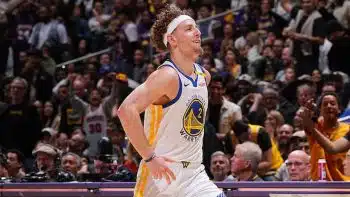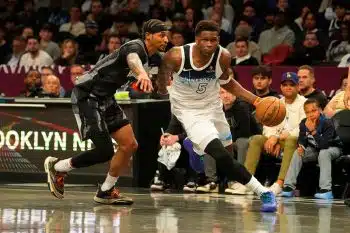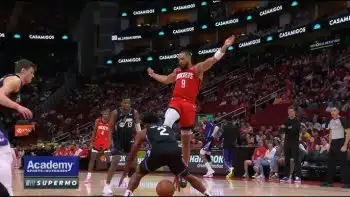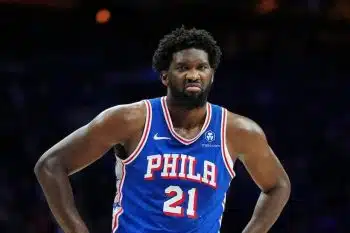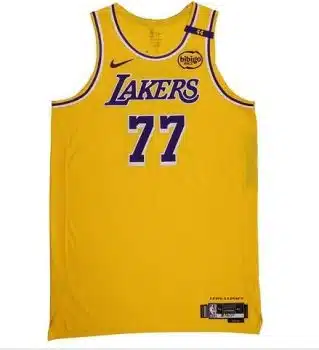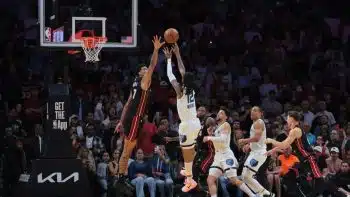NBA
The Atlanta Hawks Move On From A Doomed Dwight Howard Experiment
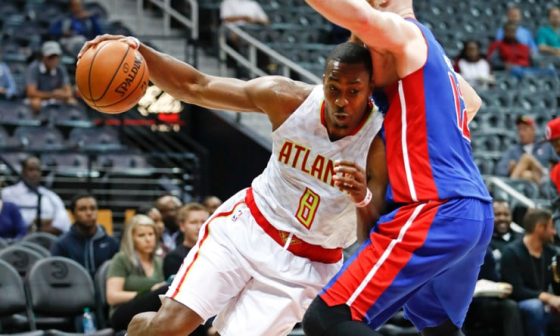
The change came subtly and suddenly. All season long, Dwight Howard had been a model citizen in Atlanta, never publicly complaining about his reduced offense or shift to a roleplayer primarily counted on for rim defense and rebounding. Howard and Hawks power forward Paul Millsap had talked about winning championships together. Then came the postgame press conference following the Hawks’ Game 2 loss to Washington in the first round.
“We think we play small ball better than anybody in the league,” said Millsap from the podium following a 109-101 loss that put the Hawks in a 0-2 series hole and during which Howard sat the entire fourth quarter.
Moments earlier, Hawks coach Mike Budenholzer had informed media that Howard played only 20 minutes because he wanted more shooting on the floor in the form of Mike Muscala, who shot under 28 percent from the field and did not make a three-pointer in the series. Millsap could have simply said it was Budenholzer’s decision, but instead, he went out of his way to rationalize that decision which resulted in a 42-28 closing run by the Wizards as Howard looked on from the bench.
The Hawks led 73-67 when Howard checked out for the last time with 3:38 to play in the third quarter. For the game, Howard’s +5 was best among Atlanta’s starters. Through Game 5, when Howard once again sat the entire fourth quarter, Howard’s +2.8 net rating was easily best among the starters, far superior to Millsap’s -3.2. And yet, as Millsap sat alone at the podium and addressed reporters, suddenly Howard was no longer the player he expected to win championships with. Suddenly, Howard was the problem.
In the early morning hours before the Hawks were beaten at home 115-99 in Game 6 as the Wizards advanced to the second round to face the Celtics, Howard was pulled over and had his car towed for no insurance. During Game 6, Howard was an unplayable -14 in 23 minutes. It would be Howard’s final minutes as a Hawk, as incoming GM Travis Schlenk traded Howard and the 31st pick in Thursday’s NBA draft to the Charlotte Hornets for Miles Plumlee, Marco Belinelli, and the 41st pick on Tuesday, according to Adrian Wojnarowski of The Vertical.
Sources: Charlotte is sending Miles Plumlee, Marco Belenelli and 41st pick to Atlanta for Dwight Howard and 31st pick.
— Adrian Wojnarowski (@wojespn) June 21, 2017
The whole point of having a coach hold the dual title of head of basketball operations is to ensure with 100 percent certainty that the roster assembled matches the playing style of the coach. Somehow, with Budenholzer in the dual role, this didn’t happen. Howard’s signing was followed swiftly by Al Horford’s defection via free agency to the Boston Celtics. The Hawks were left without the elite passing center who helped the team be among league leaders in generating wide open shots throughout the Budenholzer-Horford partnership.
Wide open shots would be much harder to come by with Howard’s predictable and inefficient post isolation game. Atlanta’s three-point shooting dropped to its lowest percentages of the Budenholzer era with the rangy Horford out of the picture. And while Howard was far more efficient as the roll man in pick-and-rolls, he ran fewer than 100 such plays as a Hawk while attempting nearly 300 post isos, posting an anemic .84 points per possession, which ranked in the 38th percentile league-wide.
Howard was the worst thing that could possibly happen to the Hawks in terms of Budenholzer’s preferred style. The failure of Budenholzer’s dual role to produce the needed synergy between coaching and player style resulted in swift fallout. Within hours of the first round defeat to the Wizards, Budenholzer relinquished his president title and Wes Wilcox transitioned from GM to an advisory role. Schlenk, the former assitant GM of the Golden State Warriors, was tapped by Hawks principal owner Tony Ressler to step in as the lead decision maker for Atlanta’s basketball operations. Much like Danny Ferry once took over as Hawks GM and swiftly jettisoned Joe Johnson’s undesirable contract, Schlenk has pulled off another miracle by ridding Atlanta of Budenholzer’s mistake in signing Howard.
Hornets coach Steve Clifford has coached Howard as an assistant at previous stops with the Magic and Lakers. The Hornets missed the playoffs last season in large part due to the lack of athleticism and rim protection among its front court rotation. Howard addresses an obvious need, and if anyone can get something out of him, it’s Clifford.
For the Hawks, this could be the first step in a partial tear-down and rebuild by Schlenk. Just because the Hawks have moved on from the ill-fated and ill-advised Howard experiment doesn’t mean the team will now throw big money at Millsap. Schlenk has emphasized the concept of not signing bad contracts and defines a good contract as one that’s tradeable. After shooting better than 35 percent from three in his first two seasons in Atlanta, Millsap is no longer a stretch four, having shot under 32 percent the last two seasons. Overpaying for a 32-year-old, undersized power forward who can no longer stretch the floor may not meet Schlenk’s idea of a good contract.
The Golden State Warriors became the NBA’s premiere franchise by getting its draft picks right, with Schlenk serving at the right hand of legendary GM Bob Myers. The Warriors might not have made an NBA Finals — much less attracted Kevin Durant in free agency — if Myers and Schlenk hadn’t gotten the Stephen Curry, Klay Thompson and Draymond Green picks right. Green was expecting to go to the Hawks after he was extensively scouted by Atlanta front office consultant Rick Sund before Ferry was named as GM and passed on Green for John Jenkins. The Hawks could conceivably pass on signing Millsap to visit the lottery for one or more seasons and see if Schlenk has the same sort of Midas touch that Golden State’s front office has had in building a perennial contender.
For Howard, he may have received more blame than was his due, but his unprofessional conduct ahead of Game 6 simply cemented that he lacked the capacity to lead the Hawks out of decades of mediocrity and into championship contention. Atlanta now moves on from a bad idea that never made any sense, and Schlenk has a much more blank canvas upon which to paint his own vision for the Hawks.
